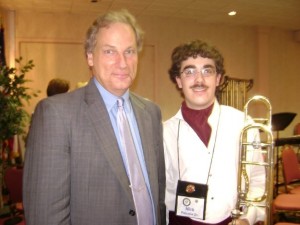Building Binaries, Constructing Identities
 In this unit, entitled “Building Binaries, Constructing Identities,” we will read the young adult novel You Don’t Know Me by David Klass. We will turn our attention to the construction of identity, both as constructed by the self and constructed by our interactions with others. We will consider how individuals view themselves in complex environments such as school and home, comparing these to John, the narrator of the text. We will take our discussions further to consider issues of identity intersectionality as well as the construction of identity binaries. These include issues of comparison by othering. Students will not only consider their social identities, but also racial, gender-specific, and class. These themes will have been touched on in the previous Of Mice and Men unit. A separate focus will be the coming-of-age novel as a genre.
In this unit, entitled “Building Binaries, Constructing Identities,” we will read the young adult novel You Don’t Know Me by David Klass. We will turn our attention to the construction of identity, both as constructed by the self and constructed by our interactions with others. We will consider how individuals view themselves in complex environments such as school and home, comparing these to John, the narrator of the text. We will take our discussions further to consider issues of identity intersectionality as well as the construction of identity binaries. These include issues of comparison by othering. Students will not only consider their social identities, but also racial, gender-specific, and class. These themes will have been touched on in the previous Of Mice and Men unit. A separate focus will be the coming-of-age novel as a genre.
Text Set
You Don’t Know Me (David Klass)
Assorted memoir
Assorted poetry on shaping identity (Whitman, Angelou, and others)
Big Ideas and Essential Questions
- What does it mean when someone “knows me”? What does it mean to “know” a person?
- Does how we view ourselves or how others view us impact our identity more?
- In what ways does love enter our lives? What does it mean to love and be loved?
These questions all speak to the interactions between the individual and the world. From our last unit, which focused on relationships between characters, this first-person narration gives us the chance to dive into the more personal aspects of constructing an identity. We can now consider how we read our own worlds.
Learning Goals
For key learning goals, see the corresponding Growth & Learning sub-section.
Curriculum Standards
RL.9-10.1 | “Cite strong and thorough textual evidence to support analysis of what the text says explicitly as well as inferences drawn from the text.” We will experiment with many forms of conversation in-class, including more Socratic seminars and circle dialogues than in previous units. These formats will encourage and often require strong textual evidence be presented.
RL.9-10.3 | “Analyze how complex characters (e.g., those with multiple or conflicting motivations) develop over the course of a text, interact with other characters, and advance the plot or develop the theme.” Our daily writing as well as our culminating thesis essay will explore changes in characters in the novel, which we will have been discussing in most classes.
RL.9-10.4 | “Determine the meaning of words and phrases as they are used in the text, including figurative and connotative meanings; analyze the cumulative impact of specific word choices on meaning and tone (e.g., how the language evokes a sense of time and place; how it sets a formal or informal tone).” We will examine the narrator’s language carefully to determine what he does and does not mean.
RL.9-10.5 | “Analyze how an author’s choices concerning how to structure a text, order events within it (e.g., parallel plots), and manipulate time (e.g., pacing, flashbacks) create such effects as mystery, tension, or surprise.” We will examine the rich ambiguities of the narrator’s mind and consider how these ambiguities impact our reading of the plot.
W.9-10.3.a-e | “Write narratives to develop real or imagined experiences or events using effective technique, well-chosen details, and well-structured event sequences. (a) Engage and orient the reader by setting out a problem, situation, or observation, establishing one or multiple point(s) of view, and introducing a narrator and/or characters; create a smooth progression of experiences or events. (b) Use narrative techniques, such as dialogue, pacing, description, reflection, and multiple plot lines, to develop experiences, events, and/or characters. (c) Use a variety of techniques to sequence events so that they build on one another to create a coherent whole. (d) Use precise words and phrases, telling details, and sensory language to convey a vivid picture of the experiences, events, setting, and/or characters. (e) Provide a conclusion that follows from and reflects on what is experienced, observed, or resolved over the course of the narrative. ” Our memoir, like others written this year, will utilize a narrative patterns and techniques, with a special emphasis on scenes and dialogue.
W.9-10.7 | Conduct short as well as more sustained research projects to answer a question (including a self-generated question) or solve a problem; narrow or broaden the inquiry when appropriate; synthesize multiple sources on the subject, demonstrating understanding of the subject under investigation.” Students will be self-generating a question for their thesis paper.
W.9-10.10 | “Write routinely over extended time frames (time for research, reflection, and revision) and shorter time frames (a single sitting or a day or two) for a range of tasks, purposes, and audiences.” Through low-stakes in class writing conducted several times per week, paired with drafting and writing of the final essay, we will engage with writing in many forms.
SL.9-10.1 | “Initiate and participate effectively in a range of collaborative discussions (one-on-one, in groups, and teacher-led) with diverse partners on grades 9–10 topics, texts, and issues, building on others’ ideas and expressing their own clearly and persuasively.” We will engage more consistently in many whole-class conversation formats that we have been scaffolding all year, such as Socratic seminars and conversation circles.
SL.9-10.3 | “Evaluate a speaker’s point of view, reasoning, and use of evidence and rhetoric, identifying any fallacious reasoning or exaggerated or distorted evidence.” We will compare the narrator’s writing to our own to make sure that our writing is without ambiguity.
SL.9-10.4 | “Present information, findings, and supporting evidence clearly, concisely, and logically such that listeners can follow the line of reasoning and the organization, development, substance, and style are appropriate to purpose, audience, and task.” Students will practice reading their own writing aloud and, through scaffolding, will hear and respond to feedback.
L.9-10.3 | “Apply knowledge of language to understand how language functions in different contexts, to make effective choices for meaning or style, and to comprehend more fully when reading or listening.” Using our self-created proofreading guides from last month, we will check to see how our personal goals in crafting strong, grammatically correct sentences are evolving.
L.9-10.6 | “Acquire and use accurately general academic and domain-specific words and phrases, sufficient for reading, writing, speaking, and listening at the college and career readiness level; demonstrate independence in gathering vocabulary knowledge when considering a word or phrase important to comprehension or expression.” (Same as above); Using our self-created proofreading guides from last month, we will check to see how our personal goals in crafting strong, grammatically correct sentences are evolving.



